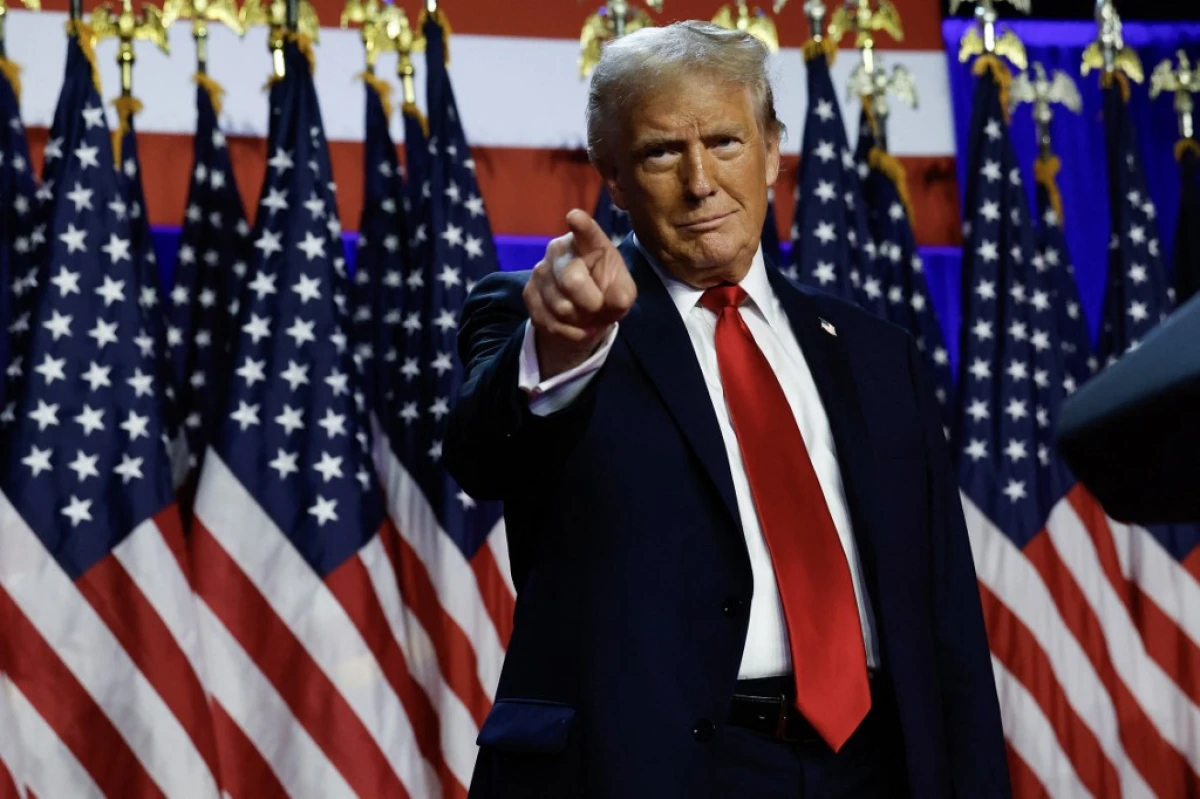
In mid-November, Donald Trump began to give details about the plan to mass deport migrants who entered the United States irregularly, a plan that he has promised to advance once he assumes the presidency on January 20. On that occasion, The Republican leader announced that he planned to declare a state of national emergency and call on the Army to enforce what was one of his main campaign promises..
The president-elect spoke again about his plan this week. He did so during the interview he gave to the prestigious TIME magazine, which selected him as the person of the year. In that conversation, the Republican reiterated that he will use the Army “to the maximum level permitted by law” and that he considers irregular migration “an invasion.”
Also read: Donald Trump nominates Daniel Newlin as the next US ambassador to Colombia
Trump explained that he would request the use of the National Guard and local law enforcement to complement the Army’s efforts in the mass deportation of migrants. It should be noted, however, that US law states that the Armed Forces cannot be used to enforce national laws without a law passed by Congress.
Regarding those laws governing the use of the military, Trump stated: “Well, no, they don’t stop the Army if it’s an invasion of our country, and I consider it an invasion of our country.”
“I’ll only do what the law allows, but I’ll go as far as the law allows. And I think in many cases, sheriffs and law enforcement will need help. We’ll also have the National Guard, and we’ll go as far as I can.” allow them to go, in accordance with the laws of our country,” he added.
What more details did you give about the plan?
Trump has on several occasions described the entry of migrants without a visa across the border with Mexico as an “invasion.” He accuses them, in his words, of poisoning “the blood” and “infecting” the United States, of eating pets, of being “murderers” and “savages”, among other extreme derogatory qualifiers.. And to supposedly “liberate,” according to him, the country plans “the largest deportation operation in the history of the United States” as soon as he takes office.
In April, the Republican said the National Guard “should be able” to handle deportations. “If not, I would use the army,” that is, federal troops, he declared.
Also read: Trump warns illegal pregnant migrants who give birth in the United States
But the deportation of migrants is nothing new in the United States. The administration of the outgoing president, Joe Biden, expelled more than four million, “combining deportations with expulsions and other actions to block the entry of migrants,” according to a report from the Migration Policy Institute (MPI), based in Washington. However, the Republican plans to go much further.
In conversation with TIME, he gave more outlines of what that plan would be. He suggested that he could build new detention facilities to house the migrants he will deport under his planand even assured that he will negotiate with other countries to receive deportees and that he will threaten allies with tariffs if they do not agree to receive people expelled from the United States.
When asked about the possibility of new migrant detention camps being built during his administration, Trump responded: “There could be.” “Whatever it takes to get them out. I don’t care. Honestly, whatever it takes to get them out. Again, I will do it absolutely within the confines of the law. But if new camps are needed, I hope it’s not too many because I want to get them out. “I don’t want them to be sitting in a camp for the next 20 years,” he insisted.
He added: “I want them gone, and the countries must receive them, and if they don’t receive them, we will not do business with those countries, and we will apply very substantial tariffs to them. When they send products, they will have substantial tariffs, and it will be very difficult for them to do business with us.”
Also read: Trump’s harsh warning to Hamas: ‘They will pay dearly’ if they don’t release Gaza hostages soon
In the past, the next president of the United States has said he will invoke the Enemies Alien Act of 1798, close the border with Mexico, resume construction of the border wall and hire about 10,000 agents. He will also try to revive the Stay in Mexico program, so that migrants wait for the outcome of the immigration process on the other side of the border, prohibit sanctuary cities, which protect them from expulsion, and eliminate “all federal and social assistance benefits.”
In addition, Trump wants to end – or limit – other legal means of entry such as an immigration protection that grants residence and work permits (Temporary Protected Status, TPS) or the possibility of requesting an appointment through a mobile phone application or through procedures in the countries through which they pass.

AFP
However, this week, in the interview with TIME, he reiterated his promise not to separate families with mixed immigration status because he prefers to “deport them together.” The Republican had said Sunday in another interview, his first since his victory, that he wanted to offer families with mixed immigration status the option of leaving the country together if one member is deported.
Also read: Donald Trump threatens BRICS countries if they try to end dollar dominance: this is what he said
In any case, human rights organizations are concerned about the fate of the more than 11 million migrants in an irregular situation in the United States.
Many economists have also warned of the exorbitant cost of mass deportation and its impact on the U.S. economy, which is already suffering from a labor shortage. A study published in October by the NGO American Immigration Council evaluates the global cost at 88 billion dollars per year, that is, 967.9 billion in more than a decade.
Source: https://www.noticiascaracol.com/mundo/estados-unidos-donald-trump-dio-mas-detalles-de-como-usara-al-ejercito-para-deportaciones-masivas-rg10


